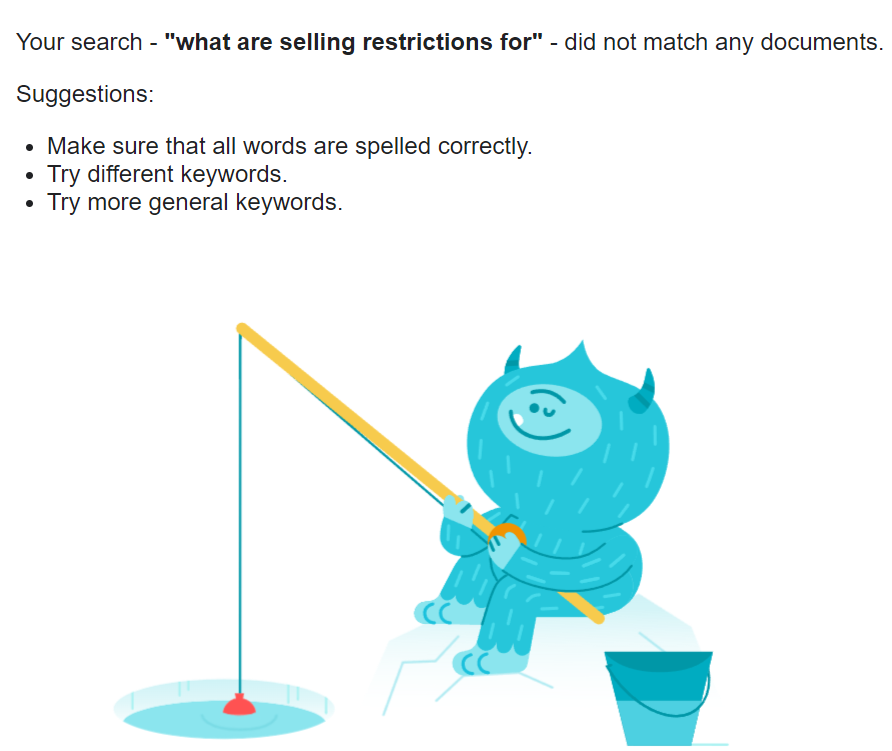Selling restrictions: Difference between revisions
Amwelladmin (talk | contribs) No edit summary |
Amwelladmin (talk | contribs) No edit summary |
||
| Line 1: | Line 1: | ||
{{a|repack|{{image|selling restrictions|png|}}}}Ask a capital markets lawyer what a selling restriction ''is'', and you can expect a fulsome answer. She will happily provide reams of examples, inscrutable tracts, reciting ancient American securities laws and their associated apocrypha, and alphanumeric codes referencing baffling delegated regulations of the European Parliament and of the Council, punctuated by block-capital harangues of New Hampshire residents, and any flavour of local variations. Selling restrictions are the pages and pages of [[magic circle]] [[boilerplate]] that | {{a|repack|{{image|selling restrictions|png|}}}}Ask a capital markets lawyer what a selling restriction ''is'', and you can expect a fulsome answer. She will happily provide reams of examples, inscrutable tracts, reciting ancient American [[Securities Act of 1933|securities laws]] and their associated [[Securities Exchange Act of 1934|apocrypha]], and alphanumeric codes referencing baffling delegated regulations of the European Parliament and of the Council, punctuated by [[RESIDENTS OF NEW HAMPSHIRE|block-capital harangues of New Hampshire residents]], and any flavour of local variations. She collects them like a schoolboy collects football cards, gluing them into a Panini album. | ||
Selling restrictions are the pages and pages of [[magic circle]] [[boilerplate]] that lend heft to a [[prospectus]]. They recite the public and private offering regulations in any jurisdiction in which the securities might possibly be offered, a catalogue of intercessory prayers offered by the arranger. | |||
Ask her what this [[tedious]] catalog is ''for'', and you’ll get a blanker look. The | Ask her what this [[tedious]] catalog is ''for'', and you’ll get a blanker look. The | ||
Revision as of 09:14, 29 November 2022
|
The Law and Lore of Repackaging
|
Ask a capital markets lawyer what a selling restriction is, and you can expect a fulsome answer. She will happily provide reams of examples, inscrutable tracts, reciting ancient American securities laws and their associated apocrypha, and alphanumeric codes referencing baffling delegated regulations of the European Parliament and of the Council, punctuated by block-capital harangues of New Hampshire residents, and any flavour of local variations. She collects them like a schoolboy collects football cards, gluing them into a Panini album.
Selling restrictions are the pages and pages of magic circle boilerplate that lend heft to a prospectus. They recite the public and private offering regulations in any jurisdiction in which the securities might possibly be offered, a catalogue of intercessory prayers offered by the arranger.
Ask her what this tedious catalog is for, and you’ll get a blanker look. The
On of the more pointless wastes of trees in the realm of securities marketing, selling restrictions to a bond lawyer are almost as ineffable but tedious (ineffability and tedium being, of course related concepts) and infused with a sombre, ambulatory horror as netting opinions are to a derivatives lawyer. There is no end of bother one can theoretically get into should one offer for sale in a place you are not to meant to, a commercial security.
This is all deep lore, reflecting two facts: one, that one can “offer for sale” in a way that can get you deep in the schtook, a security without actually erecting a billboard and or advertising on the side of a bus; more psychologically fragile securities lawyers have been known to seek safe spaces at the mere casual mention of a tradable financial instrument; and two, there was once a time, many, mean years ago, where Belgian dentists. tax dodgers and other undesirable types could buy and sell securities literally out of the boot of the Citroen from which they had just collected them from the Luxembourg issue and paying agent, and thus the practical controls on whom one could offer, or even sell, securities to were very limited.
These days they are not: everything trades electronically, all is security controlled, hand-shaken, checked for money-laundering. two-factor authenticated and encrypted, so that no-one has any excuse for knowing, or not knowing (or for that matter stopping) who they trade a given security with.
